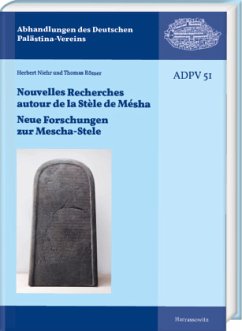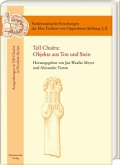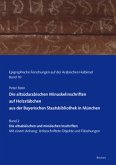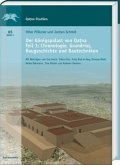When in August 1868 the Alsatian Frederick A. Klein, the first European to be shown the stele with the inscription of the Moabite King Mesha (c. 853-810 BC) in Dhiban in East Jordan, he could not have foreseen the extent to which this find and its evaluation would promote research into both the Levant of the 9th century BC and the Old Testament up to the present day. Of all the texts in the Moabite language, the inscription of King Mesha is still the most comprehensive. Already Ernest Renan described it in the 19th century as "La reine de toutes les inscriptions sémitiques."This volume documents the papers presented on 2 and 3 October 2018 on the occasion of the 150th anniversary of the finding of the Mesha Stele at a conference organised in Paris by the Collège de France, the Musée du Louvre and the Deutscher Verein zur Erforschung Palästinas. First of all, the discovery and acquisition of the stele, its transfer to the Louvre, its reconstruction and its deciphering are examined. Further articles discuss questions of epigraphy, philology and the dating of the inscription. This is followed by articles on the historical and biblical aspects of the inscription as well as on the royal ideology and religion of the Mesha-Inscription.Contributions in French, English and German.
Bitte wählen Sie Ihr Anliegen aus.
Rechnungen
Retourenschein anfordern
Bestellstatus
Storno




![Nouvelles Recherches Historiques Sur La Principauté Française De Morée Et Ses Hautes Baronnies. [With] Atlas Nouvelles Recherches Historiques Sur La Principauté Française De Morée Et Ses Hautes Baronnies. [With] Atlas](https://bilder.buecher.de/produkte/66/66953/66953408m.jpg)


